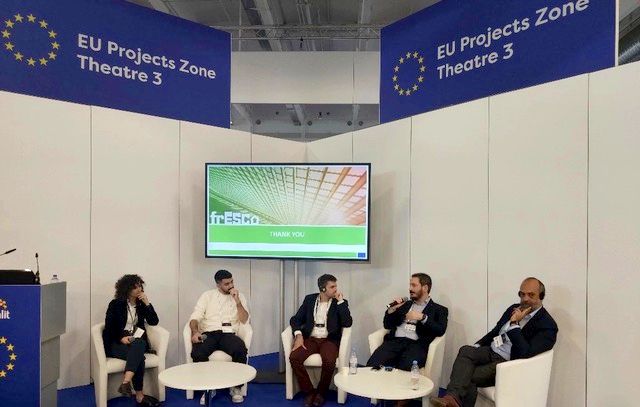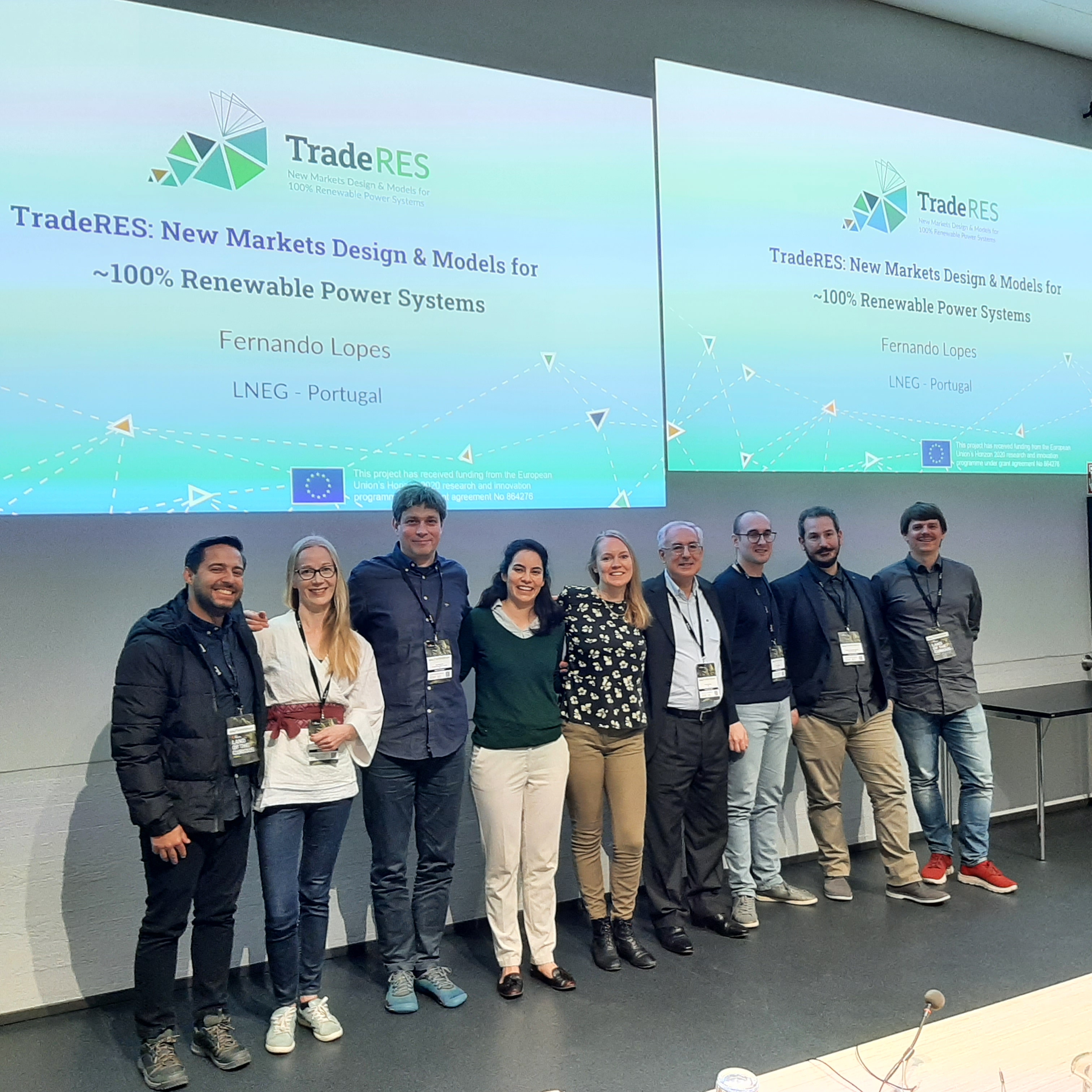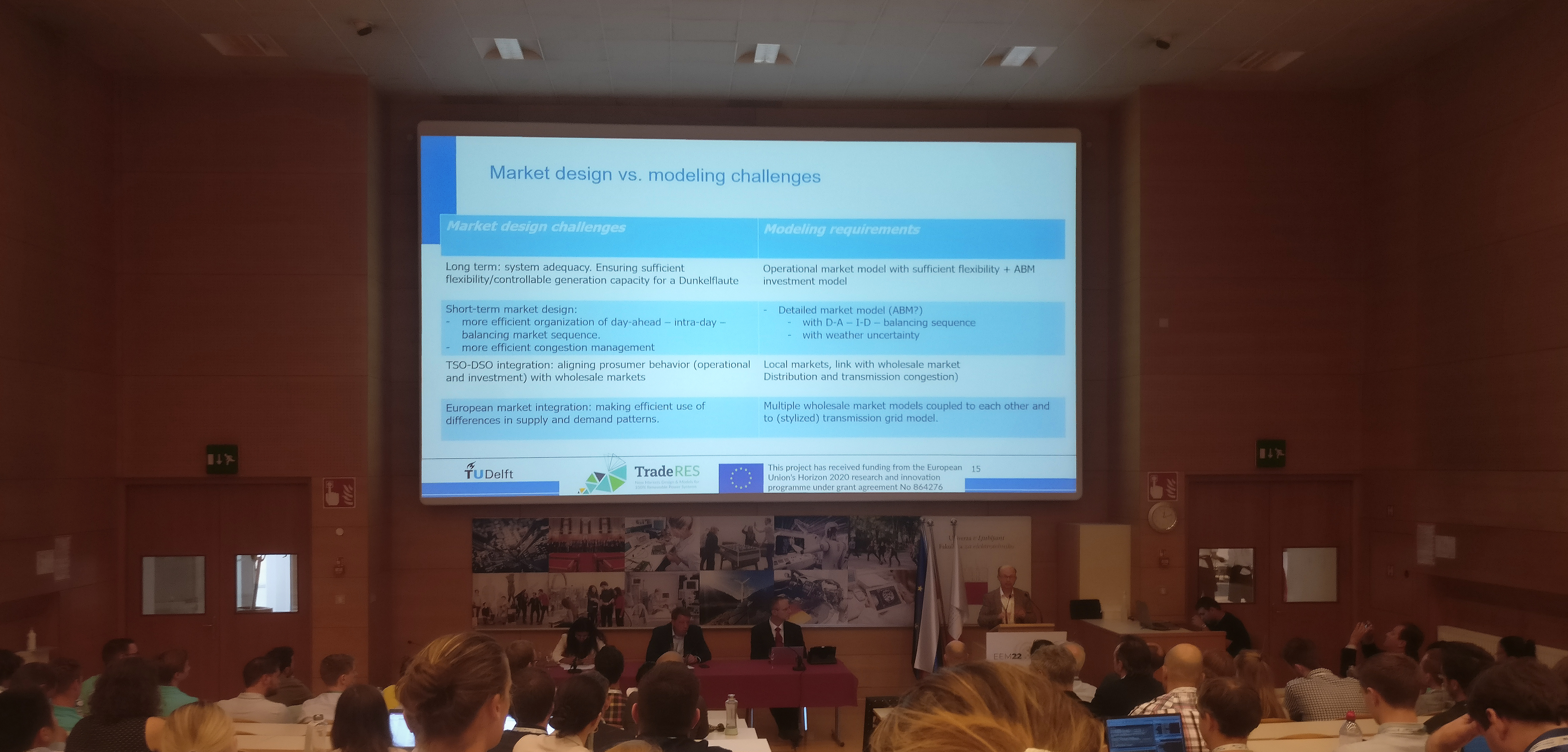DLR:
- Webtool: TradeRES case study outcomes were made ready for interactive inspection in the TradeRES web tool at https://webtool.traderes.eu/
- Press release: Outcomes of the German case study are highlighted on DLR’s web page https://www.dlr.de/de/ve/
aktuelles/nachrichten/archiv/ 2024/bewertung-von- foerderinstrumenten-im- projekt-traderes - Article: Outcomes of the German case study were published in the public journal “Energiewirtschaftliche Tagesfragen” No 11/24, Pages 51-54.
Imperial:
- For realistic and scalable results, modelling approaches should be significantly informed by the behavioural and operational characteristics of actors, which are affected by technological and regulatory developments.
- Local market structures, such as Local Energy Markets and Communities, although there are significant challenges in their implementation, were found to present significant opportunities for more and better-shared benefits to society.
- The performance of market clearing mechanisms when it comes to local structures like LEM and LEC can be affected by information availability and participants’ level of sophistication, while the economic viability and the transacted volume seem to be significantly affected by the tariff structures and network charges.
TNO:
Capacity Remuneration Mechanisms (CRMs):
- Capacity Remuneration Mechanisms (CRMs) are needed, both during and after the energy transition. They reduce the investment in vRES, while promote the robustness of the power system and have a small impact on system’s costs;
- CRMs should be based on the “demand for firm capacity” by final consumers, including households and SMEs, and also provide them with a price hedge (insurance).
VTT
- In optimised reference systems, flexibility was achieved through investments in hydrogen turbines in the scenarios where demand-side flexibility was assumed to be largely unavailable.
- The findings revealed that electricity prices are highly sensitive to both the capacity mix and electricity demand.
- Additionally, lowering financing costs for wind power was shown to significantly reduce total system costs and reliance on fuel imports.
TUDELFT
- vRES support is likely needed even in a steady-state, all-renewable energy system, due to the investment risks caused by year-on-year weather variance.
- A CRM will be needed to ensure system adequacy during and after the energy transition. A capacity market is most effective, but does not support demand flexibility sufficiently. A decentralized capacity market could be better, but needs to be combined with long-term contracts for new low-carbon dispatchable capacity.
 Good News! The newest version of the TradeRES database is now available on Zenodo! Explore valuable resources for
Good News! The newest version of the TradeRES database is now available on Zenodo! Explore valuable resources for

 Huge presence at the conference EEM 23 in Lappeenranta, Finland. Meet the inspiring energy TradeRES team.
Huge presence at the conference EEM 23 in Lappeenranta, Finland. Meet the inspiring energy TradeRES team. This Special Session highlighted the project’s findings and achievements, including electricity market models, case studies from local energy communities, and the modelling of new market designs for a (near) 100% renewable energy system.
This Special Session highlighted the project’s findings and achievements, including electricity market models, case studies from local energy communities, and the modelling of new market designs for a (near) 100% renewable energy system.

